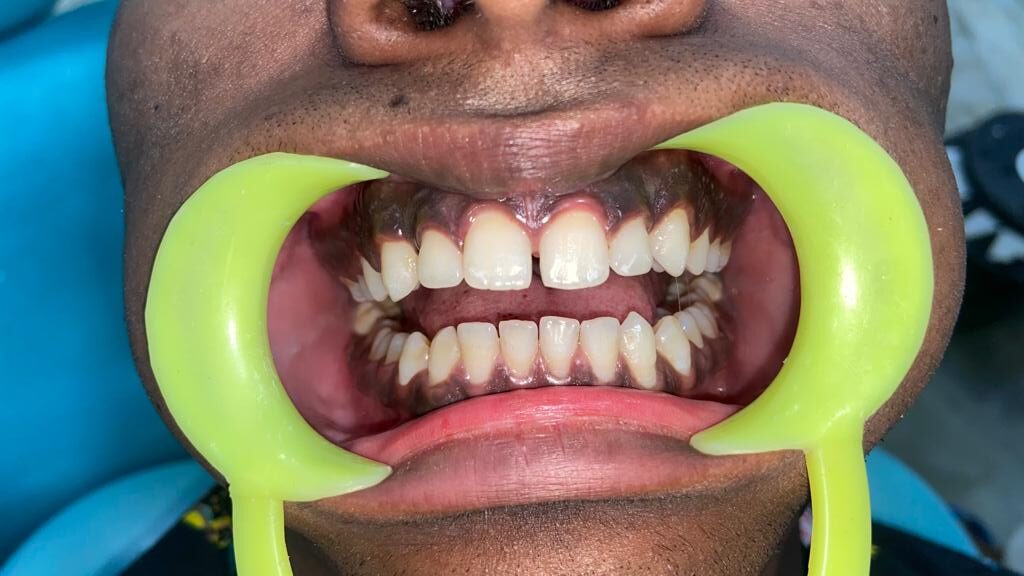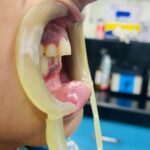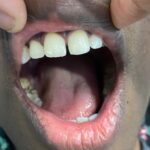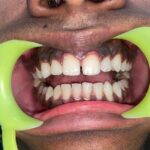What is Gum disease (periodontitis) Treatment

Gum disease, also known as periodontal disease, can manifest with various symptoms. It’s important to be aware of these signs, as early detection and treatment are crucial for preventing the condition from progressing.
The Periodontitis Treatment Process
Comprehensive Assessment: Dr. Praveen Kumar conducts a thorough evaluation of your gum health, including measuring pocket depths, assessing gum recession, and evaluating X-rays.
Customized Treatment Plan: Based on your assessment, a personalized treatment plan is created. This may include non-surgical techniques like scaling and root planing or surgical interventions when necessary.
Scaling and Root Planing: This deep cleaning procedure removes plaque and tartar buildup from below the gumline and smooths the tooth roots to encourage gum reattachment.
Surgical Interventions: In advanced cases, surgical procedures such as gum grafting or pocket reduction surgery may be recommended.
Maintenance and Follow-Up: Periodontitis treatment requires ongoing maintenance and monitoring to ensure the disease does not return. Regular follow-up appointments are essential.
Common Reasons for Gum disease (periodontitis) Treatment
Gum Bleeding
One of the early signs of gum disease is bleeding gums, especially when brushing, flossing, or eating. Healthy gums should not bleed with routine oral care.
Swollen or Red Gums
Inflammation of the gums is a hallmark of gum disease. The gums may appear swollen, red, and puffy, particularly along the gumline.
Gum Recession
As gum disease progresses, the gum tissue may pull away from the teeth, causing them to appear longer. This is known as gum recession and can expose the tooth roots.
Bad Breath
Persistent bad breath (halitosis) is a common symptom of gum disease. It's often caused by the presence of bacteria in the mouth and the breakdown of gum tissue.
Tooth Sensitivity
Gum recession can lead to tooth sensitivity, particularly to hot or cold temperatures. Exposed tooth roots are more sensitive than enamel-covered surfaces.
Loose Teeth
Advanced gum disease can lead to the loosening of teeth. This occurs as the supporting bone and tissues become damaged.
Pain or Discomfort
Gum disease can cause discomfort, pain, or a feeling of pressure around the affected teeth and gums.
Pus Between Teeth
In severe cases, pockets of pus (abscesses) can form between the teeth and gums, leading to pain, swelling, and a bad taste in the mouth.
Changes in Bite
The shifting of teeth due to gum disease can result in changes in the way the upper and lower teeth come together when biting or chewing.
Why Choose Oro Dental Clinic for Periodontitis Treatment ?
- Periodontal Expertise: Dr. Praveen Kumar is a skilled periodontist with a deep understanding of gum health and periodontal disease management.
- Advanced Techniques: Oro Dental Clinic is equipped with state-of-the-art technology to provide cutting-edge periodontal care.
- Personalized Care: We believe in customized treatment plans tailored to your unique needs to achieve optimal results.






